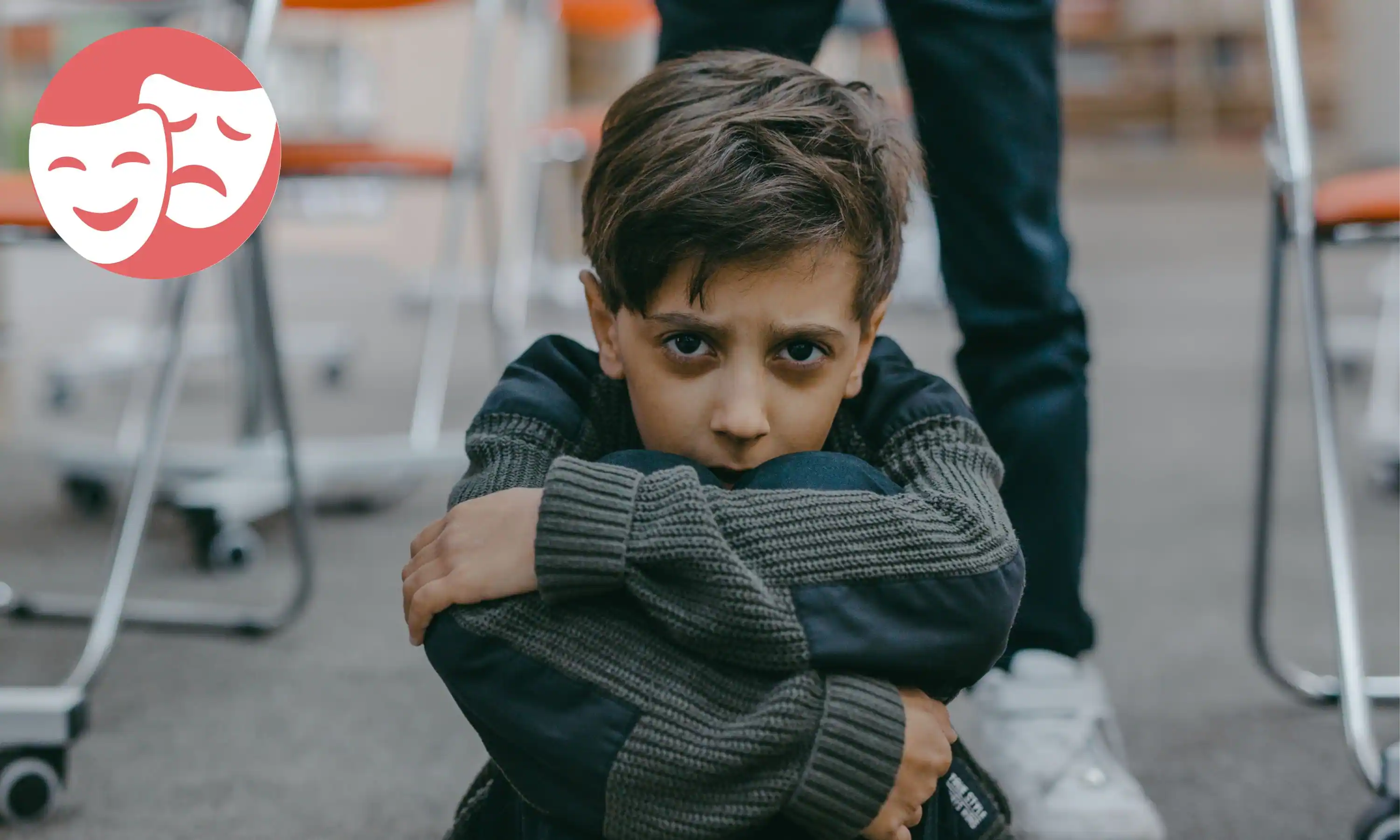Support Your Child’s
Heart Through Divorce
Help them understand, adapt, and grow during difficult family transitions.
Resilience Through Divorce/Separation
Designed with educators, backed by psychology, and
easy to integrate into your school’s
routine.

Plan Objectives
 Recognizing & Managing Emotions
Recognizing & Managing Emotions
Help your child identify, understand, and regulate their emotions effectively.
 Building Resilience
Building Resilience
Teach strategies for adapting to family changes with emotional strength and confidence.
 Handling Transitions Positively
Handling Transitions Positively
Provide tools to help children manage stress and uncertainty during family adjustments.
 Strengthening Conflict Resolution Skills
Strengthening Conflict Resolution Skills
Equip children with techniques to resolve disputes constructively within the family.
Why This Plan?
This plan addresses the following challenges by developing targeted skills

My child is unaware of their own emotions

My child considers all feedback to be negative

My child becomes upset when plans change

My child can not compromise with friends or siblings
My child is unaware of their own emotions
How This Plan Helps
Helps children identify and regulate emotions constructively.
Skill: Self-Management
Course: Emotional You: Managing Your Emotions
My child considers all feedback to be negative
How This Plan Helps
Encourages self-reflection and emotional stability to process feedback.
Skill: Resilience
Course: Resilient You: What is Resiliency?
My child becomes upset when plans change
How This Plan Helps
Teaches strategies to reduce stress and navigate change with confidence.
Skill: Fear Management
Course: FearLESS: Building Brave Young Hearts
My child can not compromise with friends or siblings
How This Plan Helps
Provides problem-solving tools to resolve disagreements in a positive manner.
Skill: Conflict Resolution
Course: Conflict Resolution Foundations
01 Coping with Emotional Ups and Downs
Helps your child express emotions in a healthy way and manage feelings of sadness, anger, or uncertainty.
02 Adjusting to Family Changes
Provides tools to embrace new family dynamics, whether with parents or step-family members.
03 Handling Uncertainty with Confidence
Teaches your child to navigate uncertainty without fear and remain optimistic about the future.
04 Resolving Disagreements Peacefully
Helps your child approach family conflicts calmly and find constructive solutions.
Real-Life Applications
How this plan's skills apply to real-world scenarios for everyday success
Courses Included


Emotional You: Managing Your Emotions
Emotional
Self-Management
Course Details:
Modules: 4 |
Lessons: 33
Understand Emotions: Recognize how feelings influence thoughts, behaviors, and relationships.
Cope with Stress: Use breathing and distraction techniques to manage challenging emotions.


Resilient You: What is Resiliency?
Emotional
Resilience
Course Details:
Modules: 4 |
Lessons: 32
Resilience Building: Enhance resilience through effective goal-setting and learning from setbacks.
Emotional Regulation: Improve well-being by developing skills for managing stress and emotions.


FearLESS: Building Brave Young Hearts
Emotional
Fear Management
Course Details:
Modules: 4 |
Lessons: 31
Understanding Fear: Recognize fear’s role and learn when it’s helpful or harmful.
Coping Strategies: Explore methods to manage fears like social anxiety and failure.


Conflict Resolution Foundations
Social
Conflict Resolution
Course Details:
Modules: 4 |
Lessons: 32
Strategies: Develop approaches to handle conflict constructively through communication and empathy.
Emotions: Manage emotions in conflict using mindfulness and positive self-talk.
Meet the Course Creators

Dr. Corina Weir
Emotional You: Managing Your Emotions
Dr. Corina Weir
Emotional You: Managing Your Emotions
Dr Corina Weir with over 8 years of specialized experience in behavior change and pediatric psychology. As a former University lecturer, she has a passion for educating the next generation. Her role as a working mother of two young children provides her with firsthand knowledge of the challenges and importance of fostering skills in emotional regulation.

Dr. Kymberli Barker
Resilient You: What is Resiliency?
Conflict Resolution Foundations
Dr. Kymberli Barker
Resilient You: What is Resiliency?
Conflict Resolution Foundations
Dr. Barker is the mother of two fantastic young men, and they are her priority in life. She holds degrees in biochemistry, math, forensics, and psychology. She is a consultant and a professor at multiple colleges, including the Citadel, and Johns Hopkins Center for Talented Youth. She spent fifteen years in public education, prior. Her personal focus is child advocacy and she developed the Guardian ad Litem/(GAL)/CASA program for the Eastern Band of Cherokee Indians. She is tribally and state sworn as a GAL. Her favorite thing is being a mom.

Lauren Hudak
FearLESS: Building Brave Young Hearts
Lauren Hudak
FearLESS: Building Brave Young Hearts
Lauren Hudak is an educator with over eight years of experience. After graduating from the University of Virginia with degrees in English Literature and Media Studies, she went on to get her Masters in Teaching from New York University. Lauren has worked with all ages of students from Pre-K through college, but she thrives when working with middle schoolers. She believes this is the perfect age to integrate mindfulness, technology, and social emotional learning into student learning objectives. She wants to help students conquer their fears and build a better world. When she’s not teaching, Lauren loves being outdoors, traveling and spending time with her family.

Ali Dareneau
Conflict Resolution Foundations
Ali Dareneau
Conflict Resolution Foundations
Ms. Dareneau is an English teacher with dual degrees in Psychology and English Education, she enjoys helping students reach their potential, especially when it comes to English Language Arts. With over 16 years of classroom experience and working with education-based companies, she brings creativity and enthusiasm to the classroom and beyond. She earned a Bachelor's degree in Psychology in 2007 and completed her Masters's degree in English Education in 2013 which have both shaped her into the passionate educator she is today. Her professional experience as an English teacher, curriculum designer, and writer demonstrates her passion for reading and writing and solidifies her belief all students can strengthen their reading and writing skills no matter what level they begin their journey.
Sample Lesson Preview 
Emotional You: Manage Your Emotions
Recognizing Anger
Recognizing Anger
Recognizing anger is like learning to spot a storm before it hits.
When you’re angry, you might feel your face get hot, your fists clench, or your heart beat faster.
Your thoughts might be racing, thinking about what upset you or how unfair things seem.
Psychologists say that noticing these signs helps you manage your emotions better.
Paying attention to how your body feels and what you’re thinking when you’re angry can help you to handle anger in a healthy way.
Knowing when you are angry is the first step to then using tools to cope with the anger in helpful ways.
Sample Lesson Preview

Resilient You: What is Resiliency?
What is Resilience?
What is Resilience?
What exactly needs to be developed to become resilient?
Many agree there are different levels of resilience to be expected at different ages and even in different fields.
For example training on military resilience is very different from how we would discuss it with teens. This course will introduce concepts for variations and provide links to additional information.
For now, we are going to begin with the idea of the 7 Cs mentioned by Coach Reese. Here they are again in case you missed them: Confidence, Competence, Connection, Character, Contribution, Coping, Control.
These seven concepts really summarize where we need to focus our attention to become stronger in certain areas of our lives.
The students will be developing their personal research focusing on one or more of these areas.
You might consider researching along with them. Where do you think you might work a bit more on skills for bouncing back?
Sample Lesson Preview 
FearLESS: Building Brave Young Hearts
Fight, Flight, or Freeze
The Triple F’s of Fear
Fight, Flight, and Freeze are the three basic ways that our bodies respond to threats.
Your brain might decide that fighting the danger is best. For example, if you are faced with an unfriendly animal, you might yell or throw things at it to try to get it to go away. You might have learned to wave your arms and stomp your feet. You’re trying to prove that you are the bigger threat so the animal will leave you alone!
Sometimes, flight is the best option. Your brain wants to get you out of a dangerous situation quickly. This could mean physically running away from something scary, but it could also mean avoiding something that you find intimidating. For example, maybe it means not raising your hand in class because you’re scared you’ll get the answer wrong in front of others.
The last “F” stands for freeze. Sometimes, your brain can’t make a decision. Instead of fighting or running from the danger, you freeze up. You might have a hard time speaking or yelling, your mouth might go dry, or you might feel faint or lightheaded.
Sample Lesson Preview 
Conflict Resolution Foundations
Causes of Conflict
Emotional Hot Buttons
It can be challenging dealing with emotional hot buttons, but there are several ways to manage them effectively.
First, identify your hot buttons by being aware of situations that make you upset or angry.
Second, calm your emotions with deep breathing or counting to ten when you feel highly emotional.
Third, talk about your feelings with a trusted friend, teacher, or parent; sharing your emotions can help you feel understood and less alone. Try to always speak from your own perspective. Do this by using “I” statements, like “I feel upset when…” to express how you feel.
Fourth, stay active through sports or hobbies to release built-up stress.
Fifth, keep a journal to write about your feelings, which can help you understand and manage them better.
These strategies can help you handle emotional hot buttons in a healthy way and improve your overall well-being.
